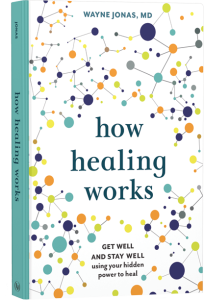Cancer is a complex illness that sets off multiple reactions and changes in the mind, body, and spirit. While the initial diagnosis requires conventional methods of treatment such as chemotherapy, surgery and radiation, many patients seek out complementary and self-care methods to supplement their treatment. Here are a few complementary and lifestyle approaches which can be used as part of your cancer care.
Acupuncture
Acupuncture involves inserting very thin needles through the skin into specific points on your body to help stimulate energy flow. Acupuncture is part of traditional Chinese medicine, which believes that energy (qi) flows through pathways (meridians) in the body. To re-balance energy, acupuncture needles are inserted into specific points along these pathways. Acupuncturists, doctors, and other health care providers can administer acupuncture treatment.
Meditation
You’ll probably need to try different types of meditation to see what works best for you and fits your lifestyle. Mindfulness-based stress reduction is a popular type of meditation that helps you access and build your natural capacity to engage in caring for yourself and find greater balance, ease, and peace of mind. It includes a range of meditation practices, including a body scan, sitting meditation, walking meditation, loving-kindness practice and gentle Hatha yoga postures.
Yoga
Yoga is an ancient mind and body practice from traditional Indian (Ayurvedic) medicine. It combines strengthening and stretching poses and deep breathing and meditation or relaxation.
There are more than 100 types of yoga. Some are fast-paced and intense. Others are gentle and relaxing. In the U.S., Hatha yoga is the most common type of yoga practiced. Hatha yoga combines a series of poses with breathing.

Healthy Eating
Cancer treatments like surgery, radiation therapy and chemo put a lot of demands on your body, and can affect the way you eat and how your body tolerates certain foods and uses nutrients.
During cancer treatments, you need extra calories and protein to keep your weight up and heal faster. Eating lots of vegetables and fruit, tempeh, and nonfat or low-fat dairy is recommended. Eating moderate amounts of whole grains, high-fat foods, and salt-cured, smoked and pickled foods is also recommended.
Exercise and Physical Activity
Cancer treatments and their side effects can make you feel bad physically and emotionally. Exercise can lessen the physical and emotional symptoms of cancer treatment, like anxiety, depression, fatigue, nausea, and weight gain. Your doctor or cancer care team can help you develop an exercise program that is appropriate for you based on your treatment progress.
Relaxation Techniques
When your body is relaxed, you breathe more slowly, have lower blood pressure, and feel a heightened sense of well-being. Relaxation techniques, which include breathing techniques, muscle relaxation, guided imagery (focusing the mind on positive images), autogenic training, biofeedback, and self-hypnosis, help produce the body’s natural relaxation response. You can do relaxation techniques on your own, or get help from a therapist or trainer.
Social Support
Social support is now usually considered mainstream cancer care, not integrative medicine. According to the Society for Integrative Oncology and other experts, the evidence base for social support is strong enough for it to be a key part of one’s cancer journey.
Social and professional interactions that foster a sense of belonging, well-being, and coherence are healing relationships. Nurturing healing relationships is one of the most powerful ways to stimulate, support, and maintain wellness and recovery.
Social support from family and friends might mean practical help – rides to and from treatments, help with grocery shopping or cooking, help taking care of your kids, help cleaning at home – or support groups like talking groups, art therapy groups, meditation groups, counseling, or online communities.
Integrative cancer care can be a great way to relieve cancer symptoms and treatment side effects; to minimize anxiety, stress, and depression; and to boost your overall sense of well-being. Through the help of your doctor and coordination with your cancer care team, you can add integrative care to your individualized treatment plan by adopting this list of safe, evidence-based complementary and lifestyle approaches into your routine. This doesn’t mean refusing conventional medicine; it means incorporating integrative approaches into your conventional cancer treatment.

Your Health Into Your Own Hands
Drawing on 40 years of research and patient care, Dr. Wayne Jonas explains how 80 percent of healing occurs organically and how to activate the healing process.

